Django Unchained Blu-ray Movie
HomeDjango Unchained Blu-ray Movie 
Blu-ray + DVD + UV Digital CopyStarz / Anchor Bay | 2012 | 165 min | Rated R | Apr 16, 2013
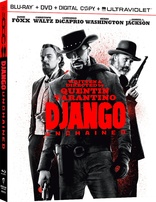
Price
Movie rating
8.4 | / 10 |
Blu-ray rating
| Users | 4.5 | |
| Reviewer | 4.0 | |
| Overall | 4.3 |
Overview
Django Unchained (2012)
With the help of his mentor, a slave-turned-bounty hunter sets out to rescue his wife from the brutal Calvin Candie, a Mississippi plantation owner.
Starring: Jamie Foxx, Christoph Waltz, Leonardo DiCaprio, Kerry Washington, Samuel L. JacksonDirector: Quentin Tarantino
| Dark humor | Uncertain |
| Period | Uncertain |
| Western | Uncertain |
Specifications
Video
Video codec: MPEG-4 AVC
Video resolution: 1080p
Aspect ratio: 2.40:1
Original aspect ratio: 2.39:1
Audio
English: DTS-HD Master Audio 5.1 (48kHz, 24-bit)
French: Dolby Digital 5.1
Spanish: Dolby Digital 5.1
Subtitles
English SDH, Spanish
Discs
50GB Blu-ray Disc
Two-disc set (1 BD, 1 DVD)
UV digital copy
DVD copy
Packaging
Slipcover in original pressing
Playback
Region A (locked)
Review
Rating summary
| Movie | 4.0 | |
| Video | 4.5 | |
| Audio | 4.5 | |
| Extras | 2.5 | |
| Overall | 4.0 |
Django Unchained Blu-ray Movie Review
Skin Game.
Reviewed by Jeffrey Kauffman April 5, 2013Django Unchained has been turning up in the strangest places lately. Just the other day quite by chance I heard a commentary by MSNBC’s Chris Matthews where he cited the film as proof that movies don’t romanticize the Antebellum South anymore. Why, yes, you could say that. And my local paper’s People column just recently had the supposed revelation from Will Smith that he turned down the title role in the film because it wasn’t the lead, and, according to this article at least, Smith requires playing the lead. But perhaps the oddest place Django Unchained made an appearance was on the winners’ podium at the Academy Awards. In a year dominated by such high profile fare as Argo, Lincoln and Life of Pi, few handicappers were willing to give Django Unchained much of a chance to claim any prizes, let alone two relatively high profile ones, Best Original Screenplay for Quentin Tarantino and Best Supporting Actor for Christoph Waltz. (Here at least one may commiserate in an ironic way with Will Smith, for Waltz surely should have been nominated for Best Actor, but such are the vagaries of show business.) Though Tarantino is on record as stating he wanted to put his own decidedly unique spin on the Spaghetti Western, even co-opting work by Ennio Morricone to help with the music, Django Unchained bears a certain (probably unintentional) relationship to the 1971 James Garner-Louis Gossett, Jr. comedy Skin Game, for both films posit the unlikely collaboration between a white and black man in the timeframe surrounding (if not directly during) The Civil War, with the black man pretending to be something he isn’t. Django Unchained is another potent example of how deliriously whimsical Tarantino can be, as well as how seemingly deliberately changeable, contrasting cartoonish violence and disturbingly realistic violence with just flat out goofy humor and a rather serious subtext.
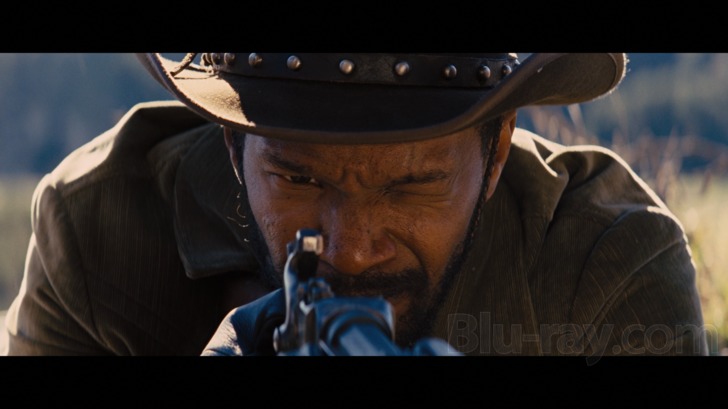
Tarantino is of course no stranger to irony as either a writer or a director, and irony runs rampant throughout Django Unchained. If one accepts the films of Sergio Leone as the paradigm of what a Spaghetti Western should be, and furthermore accepts some of Leone’s laconic heroes as personified by Clint Eastwood as the very model of curt, no nonsense fighters for justice, Tarantino upsets the apple cart (or in this case, the dental cart—but more about that in a moment) by positing characters who love to talk. And talk. And talk. This is one insanely dialogue heavy film, with long speeches by most of the large and varied cast, most notably Christoph Waltz as onetime dentist (hence the cart) and current bounty hunter named Dr. King Schultz (and if you remove the character’s surname, you get an instant glimpse into Tarantino’s often impish sense of humor, since this film is all about racial justice). In the visceral opening sequence of the film, Dr. Schultz accosts two brothers who are transporting their latest haul of slaves through the woods. Dr. Schultz attempts to make them an offer they can’t refuse for one of the slaves, a bearded soul named Django (Jamie Foxx), but “negotiations” break down, leading to the first of many almost satirically bloody shoot outs. (In terms of talkiness, note how hyperbolically florid Schultz's dialogue is, to the point that the "good ol' boy" slave owners keep telling him to "talk English".) That sets up what would appear to be the central premise of the film: Schultz needs Django to help identify three brothers who used to be hands at a plantation where Django had been enslaved, brothers who now have sizable bounties on their heads.
One of the most wonderful things about Tarantino’s writing is how brilliantly he (I would argue intentionally) mangles the vaunted “Syd Field” three act model, and that is once again fully on display in Django Unchained. As with virtually every other Tarantino film, Django Unchained’s narrative is a meandering road through several intersecting subplots. The setup dealing with the three brothers is actually dispatched (as are the brothers themselves) within the film’s first half hour or so, leaving a good two hours to then let the rest of the film unspool. While the bulk of this remainder has to do with Django and Schultz tracking down and freeing Django’s slave wife, Broomhilda (yes, Broomhilda), there are, as is so typical of Tarantino, a huge number of sidebars along the way.
A perfect example of this tendency, as well as the huge tonal shifts this film makes virtually at the drop of a hat, comes right after Django and Schultz have tracked down and dealt with the three errant brothers. The brothers’ current employer is a very southern gentleman, kind of a Colonel Sanders knockoff, named “Big Daddy” (Don Johnson), who doesn’t take kindly to an “uppity [pejorative term]” having shown up at his plantation. He gets together a cadre of nascent Ku Klux Klansmen, all of whom spend the next several minutes arguing about whether bags over their heads are a good idea. It’s just flat out silly (with a cameo by none other than Jonah Hill), and would seem at first glance to be completely at odds with the seriousness of the depiction of racial harassment. And yet this is what Django Unchained does repeatedly over the course of its long and winding road.
Schultz takes Django under his wing and makes him his deputy bounty hunter of sorts, until the two finally discover the whereabouts of Broomhilda (Kerry Washington), who it turns out is now a slave at an infamous Mississippi plantation owned by one Calvin Candie (Leonardo di Caprio), whose establishment bears the unlikely name of Candyland. This sets up the bulk of the last two thirds of the film, where Schultz and Django infiltrate the premises by pretending to be a pair of business partners intent on buying so-called “Mandingo Fighters”, black slaves who “perform” for audiences by fighting to the death. There is a fair amount of both overt and subtextual tension in this long sequence. Right there on the screen we get several depictions of horrifying cruelty to slaves, while just beneath the surface is the seething hatred Candie obviously feels for a black man of Django’s wherewithal. While the film continues with its occasionally whimsical ambience, things get decidedly more serious in the last half or so of the proceedings, as Schultz and Django’s plot to free Broomhilda of course doesn’t go according to plan. A virtually unrecognizable Samuel L. Jackson is on hand as Candie's apparently shuffling head house slave, Stephen, an Uncle Ben lookalike who is a good deal craftier than he lets on in public. (Speaking of Uncle Ben, it's probably no mere coincidence that when Candie pulls out his own personal Yorick and goes to town on the skull of the slave who helped raise him, the poor deceased's name is in fact Ben.)
It’s perhaps a bit surprising how uniformly positive most of the reaction to Django Unchained has been, at least with regard to those who regularly take Tarantino to task for being too self-aware, too self-referential, too overly arch and any number of other too’s (there were some notable exceptions to this acclaim, including some rather well publicized complaints from such people as Spike Lee). For if there’s one thing you can say about Django Unchained, it’s that if anything it is more rather than less of all the elements that tend to drive Tarantino bashers positively batty. The film is all over the place from both a narrative as well structural and tonal standpoints, and yet it’s undeniably entertaining (if more than occasionally quite disturbing). The film is unabashedly post-modern in its “meta” references (including lots of contemporary source cues, which I personally found at least a trifle distracting), and as in many other Tarantino outings, the film can lurch rather dramatically from horrifying violence to almost buffoonish comedy. But that is after all part and parcel of Tarantino’s allure: he willfully defies filmic tropes, even as he just as willfully pays homage to tradition. It’s probably just another irony that a film about slaves and slavery is so brazenly free in its approach to the subject matter.
Django Unchained Blu-ray Movie, Video Quality 
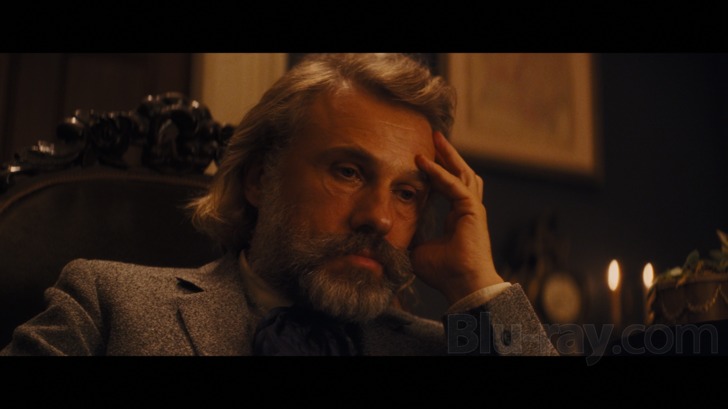
Django Unchained is presented on Blu-ray courtesy of Starz/Anchor Bay with an AVC encoded 1080p transfer in 2.40:1. If you can get past the rather copious bloodshed (whoever provided the squibs for this film must be a newly minted multimillionaire), this is easily one of Tarantino's most scenic enterprises, reminiscent in its own glamorously decrepit way of Robert Altman's McCabe and Mrs. Miller. With wonderfully evocative production and costume design, as well as brilliantly chosen locations, Django Unchained is often visually sumptuous despite its somewhat gritty subject matter, and that helps this high definition presentation to pop rather splendidly. There's the expected amount of color grading here, from the cool blue tones of the opening the probably ironic golden amber hues that infuse the Candyland sequence, but fine detail is exceptional throughout this presentation, with virtually every whiskered face and badly scarred back vividly on display. Within the context of the sometimes aggressive color timing, colors do look accurate and are very robust. Tarantino and his frequent collaborator cinematographer Robert Richardson sometimes favor a lightly diffused look, especially in some of the "candlelit" interior scenes throughout the film that give things a slightly gauzy, soft ambience, but the actual transfer here is razor sharp. (They also ape the omnipresent late sixties and early seventies fad of omnipresent zoom lenses throughout the film, so take your Dramamine before viewing if you're bothered by rapid shifts in perspective.) The lengthy film is seated comfortably on a BD-50 without a glut of supplementary materials and so compression artifacts are of no major concern.
Django Unchained Blu-ray Movie, Audio Quality 
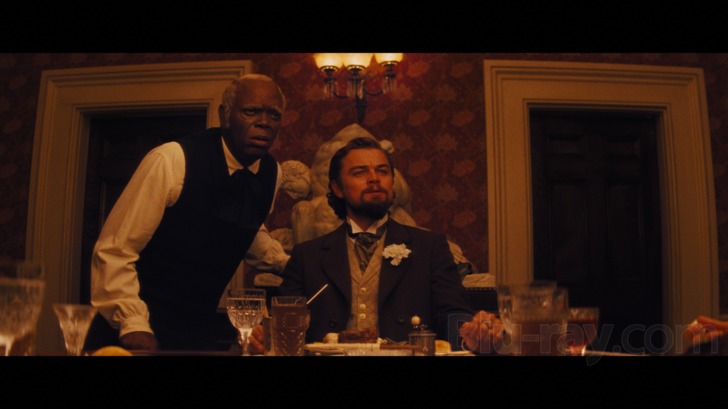
Django Unchained's lossless DTS-HD Master Audio 5.1 mix is awash in robust surround activity as well as very consistent LFE. Tarantino as usual has stuffed this film to the gills with source cues and some original material, including the intentionally retro sounding theme song which is wet to the point of drowning with reverb as well as a kind of Tom Jones meets Elvis Presley vocal by Rocky Roberts. The wide open spaces that fill up large swaths of the film allow the surround track to usher the listener into a wealth of ambient environmental noise and of course the many shootouts offer some astoundingly visceral effects. Dialogue is cleanly and clearly presented, and the mix is generally superb. I personally could have stood a bit less reverb on some of the source cues, and I was a bit put off by the rumbly low frequency effect that is utilized in several key sequences to up the tension level.
Django Unchained Blu-ray Movie, Special Features and Extras 
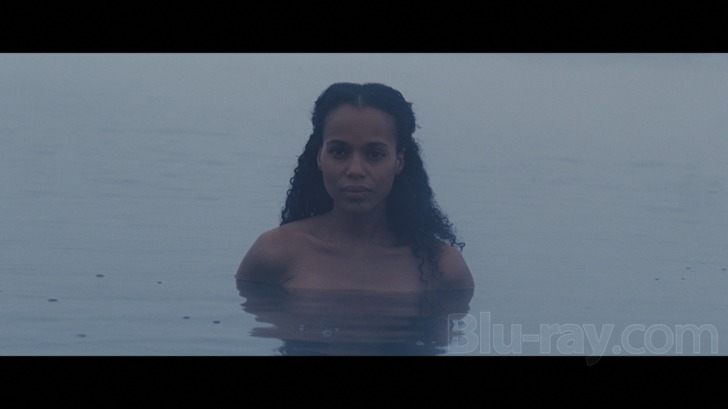
- Remembering J. Michael Riva: The Production Design of Django Unchained (1080p; 12:50) is a touching homage to Riva, the film's production designer who passed away during the shoot. Riva completed some interviews about the film before his untimely demise, parts of which are excerpted here.
- Reimagining the Spaghetti Western: The Horses and Stunts of Django Unchained (1080p; 13:46) features interviews with Tarantino and Jeff Dashnaw, the stunt coordinator on the film, both of whom go to some lengths to assure everyone that no horses were injured during the filming.
- The Costume Designs of Sharen Davis (1080p; 12:03) focuses on the film's incredibly varied costumes.
- Tarantino XX Blu-ray Collection Promo (1080p; 1:25)
- Django Unchained Soundtrack Promo (1080p; 00:22)
Django Unchained Blu-ray Movie, Overall Score and Recommendation 
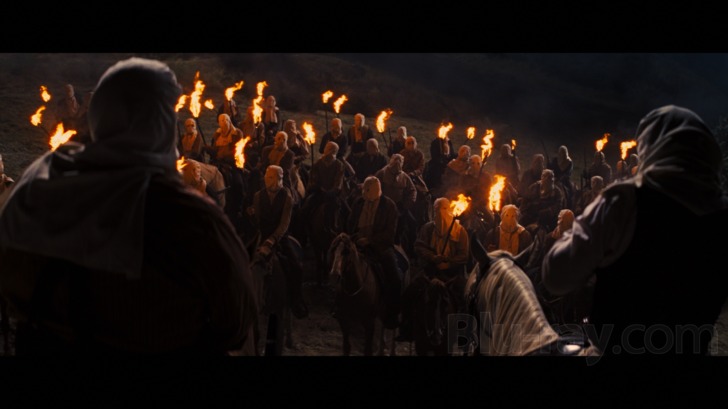
If you love Quentin Tarantino, chances are you will at least like if not outright love Django Unchained. If you're not a fan of Tarantino, there's little doubt you'll be equally unimpressed with this very Tarantino-esque outing. You either go with the Tarantino flow, in which case you're willing to put up with (or actually exult in) Tarantino's quicksilver changes of tone and content, or you spend two and a half hours wondering what exactly you've gotten yourself into. Django Unchained is typically hyperbolic Tarantino fare, but it's also one of his most mature presentations, one that is graced both with some of his most brilliant use of locations as well as uniformly excellent performances. The film probably could have done with a bit less silliness (which might have made its central thesis more moving), as well as about a half hour or so of judicious editing. But this is yet another sterling example of a filmmaker who resolutely refuses to follow the rules, and the results are often breathtaking. This Blu-ray offers superior video and audio, and even without a lot of supplementary material, comes Highly recommended.
Other editions
Django Unchained: Other Editions

Django Unchained
Exclusive Bonus Disc & Packaging
2012

Django Unchained
with Bonus Disc
2012

Django Unchained
With Exclusive Bonus Disc
2012

Django Unchained
2012

Django Unchained
2012

Django Unchained
2012

Django Unchained
Reel Synergy Box Set | Limited to 50
2012

Django Unchained
Western Line
2012
Similar titles
Similar titles you might also like

The Hateful Eight
2015

Inglourious Basterds 4K
2009

The Sisters Brothers
2018

The Nice Guys 4K
2016

The Wolf of Wall Street 4K
2013

Four Lions
2010

The Big Lebowski 4K
20th Anniversary Edition
1998

Monty Python's Life of Brian
The Immaculate Edition
1979

Four Rooms 4K
1995

The Magnificent Seven Ride!
1972

Shaun of the Dead
2004

Cannibal! The Musical
Alferd Packer: The Musical / Slipcase in Retailer Pressing
1993

Ed Wood
1994

The Art of Self-Defense
2019

American Psycho 4K
Uncut Version
2000

Death at a Funeral
2007

Burn After Reading
2008

Frenzy 4K
1972

God Bless America
2011

Zola
@Zola
2020